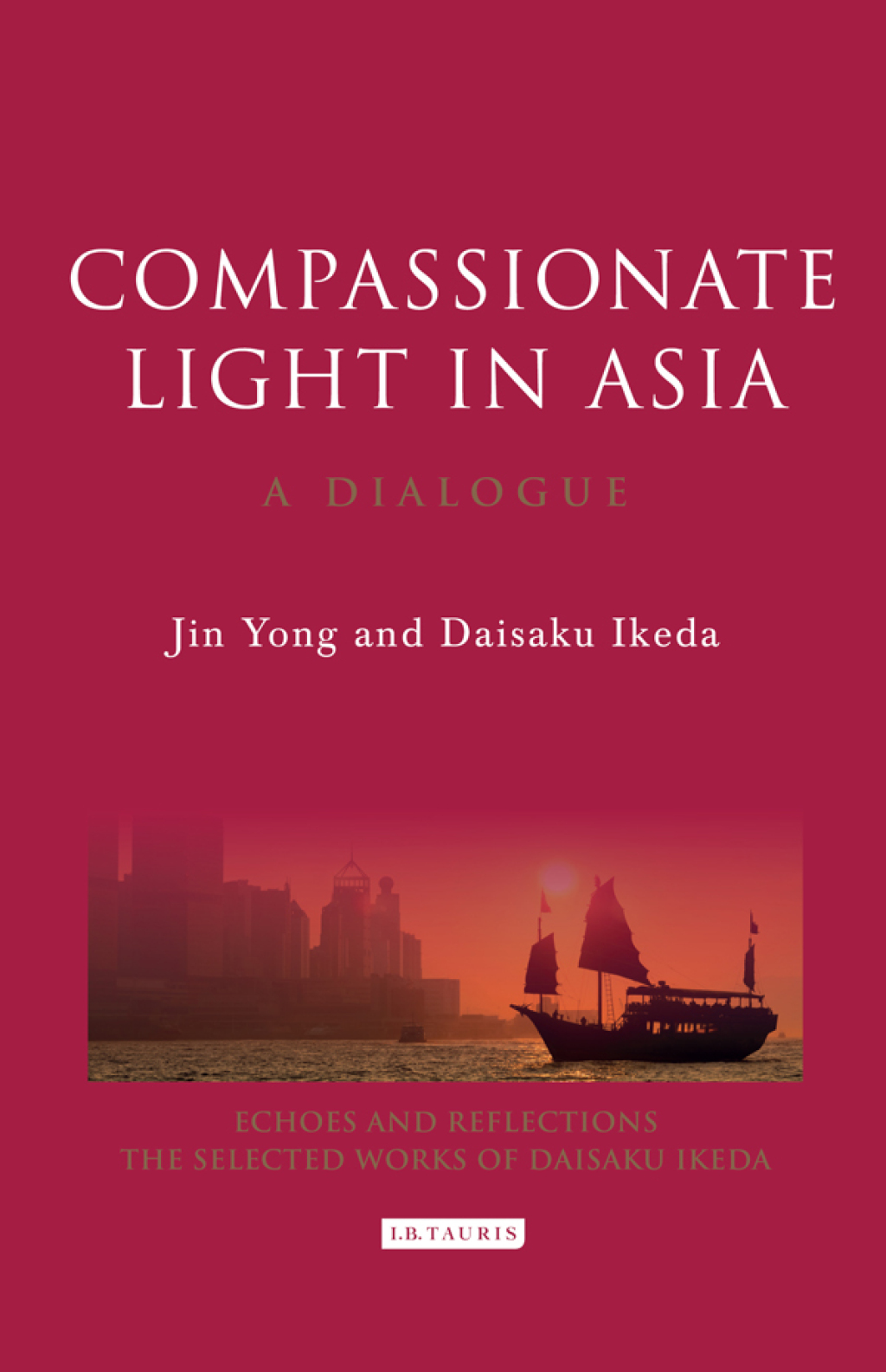Additional information
| Full Title | Compassionate Light in Asia A Dialogue 1st Edition |
|---|---|
| Author(s) | Jin Yong, Daisaku Ikeda |
| Edition | 1st Edition |
| ISBN | 9781786730022, 9781848851986 |
| Publisher | I.B. Tauris & Co Ltd |
| Format | PDF and EPUB |
Original price was: $61.20.$24.99Current price is: $24.99.
Access Compassionate Light in Asia A Dialogue 1st Edition Now. Discount up to 90%
| Full Title | Compassionate Light in Asia A Dialogue 1st Edition |
|---|---|
| Author(s) | Jin Yong, Daisaku Ikeda |
| Edition | 1st Edition |
| ISBN | 9781786730022, 9781848851986 |
| Publisher | I.B. Tauris & Co Ltd |
| Format | PDF and EPUB |
‘Life is a drama of encounters’, writes Daisaku Ikeda at the beginning of this dialogue: ‘Beautiful encounters. Momentary encounters. Each person’s drama is unique.’ This particular encounter, between a celebrated Chinese novelist and prominent Japanese religious leader, illustrates the truth of that reflection. For in the discussion that stemmed from their meetings, Jin Yong (who is sometimes called ‘the Asian Dumas’) and Daisaku Ikeda were able to find remarkable common ground – what they refer to as a ‘karmic bond’ – resulting from the particularity of their experiences in wartime and mutual resistance to adversity. Ranging across a variety of engaging themes, the interlocutors explore such topics as the nature of friendship; theories of civilization; world literatures that have inspired them; the importance of free speech; Buddhist perspectives on life and death; and the spiritual search for truth. There is sustained reflection on the horrors of war, and a plea for the importance of memory: Daisaku Ikeda emphasises that ‘peace is a battle against forgetfulness’, while Jin Yong echoes this in his observation that ‘most important is to strive to avoid war, whether it is between countries and whether it be domestic, and thus to enable people to build and improve their lives in a peaceful environment.’ Cultural differences between the peoples of China and Japan are explored, sometimes amusingly, with the Japanese propensity for discipline and rules contrasted with the Chinese spirit of creative individualism. But the authors are focused above all on serious issues of meaning and identity, and they reveal the mutual solace both have found – in the face of personal loss and bereavement – in the Buddhist scriptures, especially the Lotus Sutra. Demonstrating a remarkable capacity for empathy throughout, they incarnate in their lives and work an intelligent and sympathetic compassion that represents a beacon of hope to the future direction of Sino-Japanese relations.
Original price was: $61.20.$24.99Current price is: $24.99.
Access Compassionate Light in Asia A Dialogue 1st Edition Now. Discount up to 90%
| Full Title | Compassionate Light in Asia A Dialogue 1st Edition |
|---|---|
| Author(s) | Jin Yong, Daisaku Ikeda |
| Edition | 1st Edition |
| ISBN | 9781786720023, 9781848851986 |
| Publisher | I.B. Tauris & Co Ltd |
| Format | PDF and EPUB |
‘Life is a drama of encounters’, writes Daisaku Ikeda at the beginning of this dialogue: ‘Beautiful encounters. Momentary encounters. Each person’s drama is unique.’ This particular encounter, between a celebrated Chinese novelist and prominent Japanese religious leader, illustrates the truth of that reflection. For in the discussion that stemmed from their meetings, Jin Yong (who is sometimes called ‘the Asian Dumas’) and Daisaku Ikeda were able to find remarkable common ground – what they refer to as a ‘karmic bond’ – resulting from the particularity of their experiences in wartime and mutual resistance to adversity. Ranging across a variety of engaging themes, the interlocutors explore such topics as the nature of friendship; theories of civilization; world literatures that have inspired them; the importance of free speech; Buddhist perspectives on life and death; and the spiritual search for truth. There is sustained reflection on the horrors of war, and a plea for the importance of memory: Daisaku Ikeda emphasises that ‘peace is a battle against forgetfulness’, while Jin Yong echoes this in his observation that ‘most important is to strive to avoid war, whether it is between countries and whether it be domestic, and thus to enable people to build and improve their lives in a peaceful environment.’ Cultural differences between the peoples of China and Japan are explored, sometimes amusingly, with the Japanese propensity for discipline and rules contrasted with the Chinese spirit of creative individualism. But the authors are focused above all on serious issues of meaning and identity, and they reveal the mutual solace both have found – in the face of personal loss and bereavement – in the Buddhist scriptures, especially the Lotus Sutra. Demonstrating a remarkable capacity for empathy throughout, they incarnate in their lives and work an intelligent and sympathetic compassion that represents a beacon of hope to the future direction of Sino-Japanese relations.
